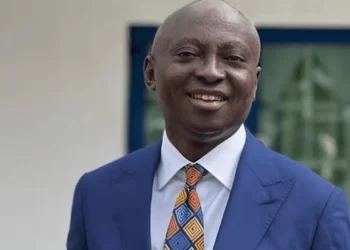Lawyer and Democracy and Development Fellow in Public Law and Justice at CDD-Ghana, Professor Stephen Kwaku Asare, has expressed deep reservations about the elevation of seven justices of the Court of Appeal to the Supreme Court, warning that the move risks undermining the effectiveness, credibility, and independence of Ghana’s judiciary.
President John Dramani Mahama has nominated seven Justices of the Court of Appeal for elevation to the Supreme Court of Ghana.
The nomination is in line with Article 144(2) of the 1992 Constitution.
In a detailed legal opinion shared on Facebook, Prof. Asare stated clearly that his concerns were not about the qualifications of the nominees—some of whom he has previously defended—but rather about the structural and constitutional implications of expanding the apex court’s bench from 12 to 19.
“A bench of nineteen raises serious concerns about judicial effectiveness,” he noted, cautioning that a court of that size could suffer from delays in deliberation, difficulty in building consensus, fragmented judgments, and weakened accountability.
Citing international comparisons, he pointed out that the U.S. Supreme Court has nine justices, South Africa’s Constitutional Court has eleven, and Kenya’s Supreme Court only seven. He argued that expanding Ghana’s bench to 19 would place it among the largest in the world with no clear justification.
Prof. Asare also questioned the logistical and financial readiness of the judiciary to accommodate such an expansion. “Where will the new justices sit? Are there sufficient chambers, clerks, and administrative staff? Has Parliament allocated any budget for this sudden enlargement?” he asked.
He emphasized that the country’s courts are already grappling with inadequate infrastructure, limited digital resources, and persistent backlogs—issues he believes stem more from inefficient case management than a lack of judges.
“The judiciary is chronically underfunded,” he noted. “Rather than expanding the apex bench, we should redirect resources toward judicial infrastructure, training, case automation, and professional support systems—reforms that would directly improve justice delivery for the ordinary person.”
Prof. Asare further cautioned that the appointments could be perceived as politically motivated. “Stacking the Court to ‘restore balance,’ even if procedurally valid, undermines constitutional integrity,” he wrote, warning against the normalization of what he called “political maneuvering in judicial appointments.”
He also questioned the timing of the nominations, describing them as troubling given ongoing developments.
“This expansion comes at a moment when the Chief Justice herself is under investigation. Proceeding with such sweeping appointments under this cloud risks tainting the process with perceptions of impropriety,” he said.
Prof. Asare urged restraint and a renewed focus on genuine judicial reforms.
“We do not need a bloated bench. We need a credible, well-resourced, and independent Supreme Court. The integrity of our judiciary must not be sacrificed on the altar of political expedience or damage control.”
Read also…..












